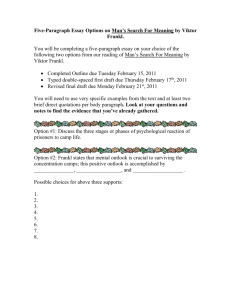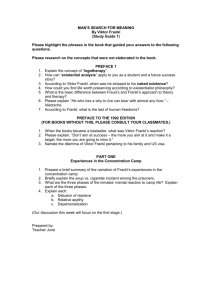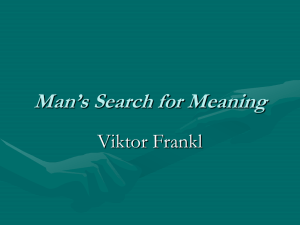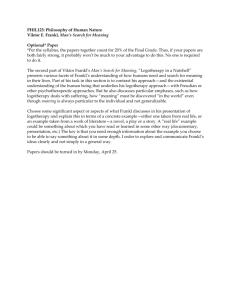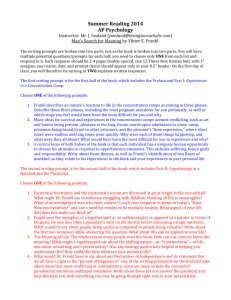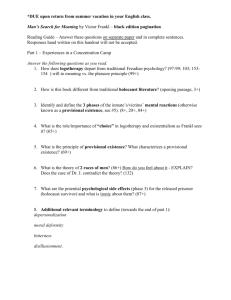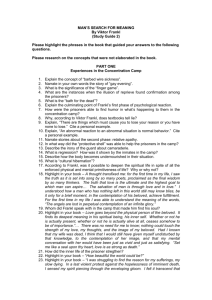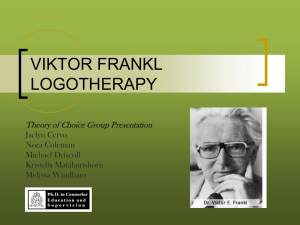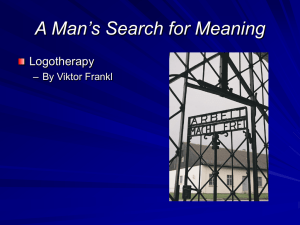Frankl Guided Reading Questions As you have indicated the prior
advertisement
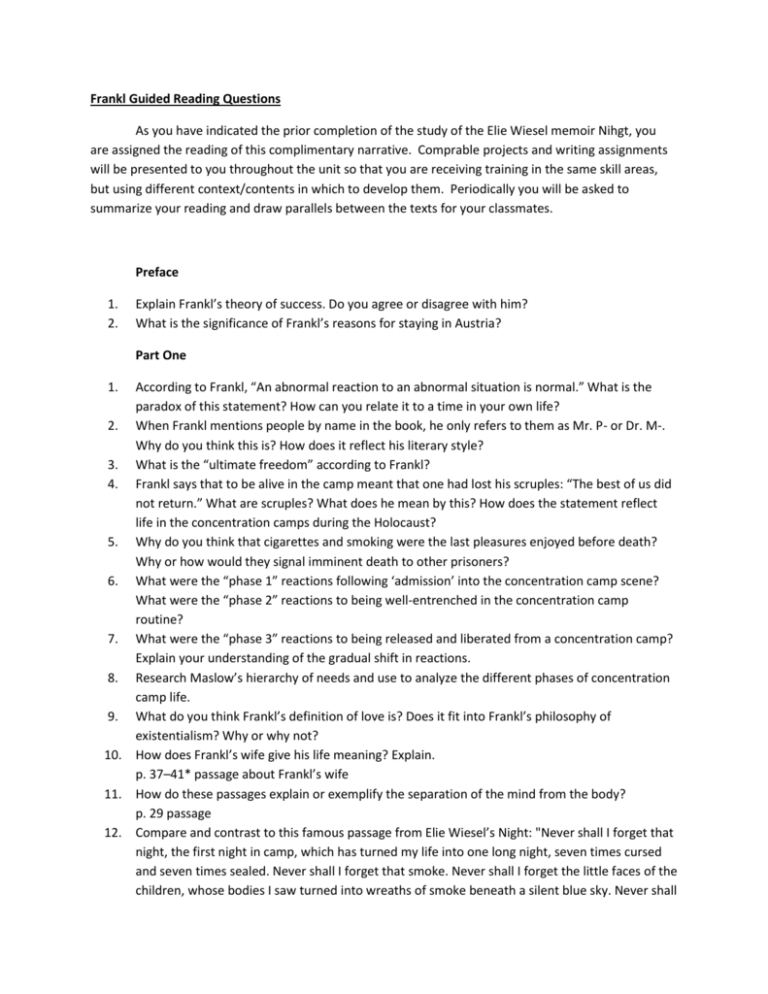
Frankl Guided Reading Questions As you have indicated the prior completion of the study of the Elie Wiesel memoir Nihgt, you are assigned the reading of this complimentary narrative. Comprable projects and writing assignments will be presented to you throughout the unit so that you are receiving training in the same skill areas, but using different context/contents in which to develop them. Periodically you will be asked to summarize your reading and draw parallels between the texts for your classmates. Preface 1. 2. Explain Frankl’s theory of success. Do you agree or disagree with him? What is the significance of Frankl’s reasons for staying in Austria? Part One 1. According to Frankl, “An abnormal reaction to an abnormal situation is normal.” What is the paradox of this statement? How can you relate it to a time in your own life? 2. When Frankl mentions people by name in the book, he only refers to them as Mr. P- or Dr. M-. Why do you think this is? How does it reflect his literary style? 3. What is the “ultimate freedom” according to Frankl? 4. Frankl says that to be alive in the camp meant that one had lost his scruples: “The best of us did not return.” What are scruples? What does he mean by this? How does the statement reflect life in the concentration camps during the Holocaust? 5. Why do you think that cigarettes and smoking were the last pleasures enjoyed before death? Why or how would they signal imminent death to other prisoners? 6. What were the “phase 1” reactions following ‘admission’ into the concentration camp scene? What were the “phase 2” reactions to being well-entrenched in the concentration camp routine? 7. What were the “phase 3” reactions to being released and liberated from a concentration camp? Explain your understanding of the gradual shift in reactions. 8. Research Maslow’s hierarchy of needs and use to analyze the different phases of concentration camp life. 9. What do you think Frankl’s definition of love is? Does it fit into Frankl’s philosophy of existentialism? Why or why not? 10. How does Frankl’s wife give his life meaning? Explain. p. 37–41* passage about Frankl’s wife 11. How do these passages explain or exemplify the separation of the mind from the body? p. 29 passage 12. Compare and contrast to this famous passage from Elie Wiesel’s Night: "Never shall I forget that night, the first night in camp, which has turned my life into one long night, seven times cursed and seven times sealed. Never shall I forget that smoke. Never shall I forget the little faces of the children, whose bodies I saw turned into wreaths of smoke beneath a silent blue sky. Never shall I forget those flames which consumed my faith forever. Never shall I forget that nocturnal silence which deprived me, for all eternity, of the desire to live. Never shall I forget those moments which murdered my God and my soul and turned my dreams to dust. Never shall I forget these things, even if I am condemned to live as long as God Himself. Never." 13. p. 86–87 passage questions the oversimplification of decent vs. indecent or good vs. evil among human beings in the Holocaust. *Page numbers may not correspond to your edition of the text.
